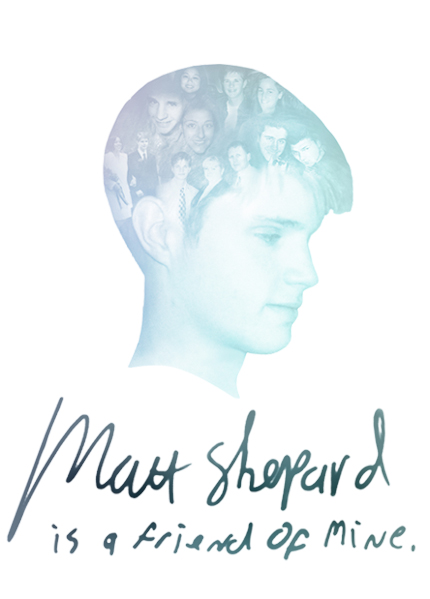
The room was dark, but throughout it glistened the eyes of many who started to shed tears. The crowd watched the screen as the unconscious body of a small, blonde boy lay in the Poudre Valley Hospital bed attached to tubes and IVs; 21 years old with a mouth still filled with braces; blood dry from the gashes on his face from days earlier.
Friends read old letters and couldn’t hold back their sobs. A proud mother told of her heartache as she tried to be brave for her son. A solemn father sat with regret and wished he could tell his first-born how proud he was of him and how much he loved him just one more time.
Matthew “Matt” Shepard was a gay youth during the 1990’s. He lost his life to a hate crime in the dark, vast fields east of Laramie, Wyoming, where no one could hear his cries for help. Matt Shepard sighed his last breath of air at 12:53 a.m. on Oct. 12, 1998.
On Monday, April 6 in the Lecture Center, SUNY New Paltz’s REACT to FILM chapter showed the powerful feature documentary of Matt Shepard’s all too-brief life, entitled, “Matt Shepard is a Friend of Mine,” directed by his close friend, Michele Josue.
The film revisits the shocking case of Matt Shepard, a young gay man who was tortured and murdered in one of the most notorious hate crimes in United States history.
Throughout the film, friends and family continue to say that Matt had too much faith in people. This was a quality that everyone loved about him –– the quality that made him so good –– but his trust was not deserved by all.
Shepard’s murderers, Aaron McKinney and Russell Henderson, saw him across the room at the Fireside Lounge in Laramie, Wyoming. The two pretended to come on to Shepard and convinced him to leave with them. Planning to rob him of whatever money he might have had, McKinney, 22 at the time, and Henderson, 21 at the time, tied him to a fence, beat him with the butt of a pistol and left him to die on a cold October night.
This notorious anti-gay hate crime sparked a nationwide activist movement. Shepard’s parents, Judy and Dennis, founded the Matthew Shepard Foundation, whose vision is “to replace hate with understanding, compassion and acceptance” and whose mission is to “empower individuals to embrace human dignity and diversity through outreach, advocacy and resources, affecting positive change,” according to their website.
Much like the Matthew Shepard Foundation, REACT to FILM is an organization that inspires young people to engage in the real issues of today through film.
Alexis Walker, a fourth-year communications major and co-President of SUNY New Paltz’s REACT to FILM, said the mission of the organization as a whole is to spark awareness and start conversation among peers.
“It’s good for the campus because it’s something different and it makes a change,” she said. “This issue [of anti-gay attitudes] is a tough one to swallow, but being aware helps everyone.”
Walker said the most inspiring part of the film was when Josue, the director of the film and Shepard’s close friend, spoke to Father Rogers, a priest from Wyoming who knew Shepard as well as McKinney and Henderson.
Something that Rogers said that stuck with her was when he said, “There are just some things that you need to keep being angry about and that you shouldn’t completely let go of.”
Guy Visk, a program assistant at the Migrant Education Program on campus and a resident of New Paltz, said what Father Rogers said to Josue stuck with him as well.
“This horrible thing that happened created an opportunity for people to open up their hearts and their minds,” he said.
Visk said he enjoyed the personal perspective of the documentary and said that it was the best representation he had seen of Shepard as a person.
“You can read about something or have someone tell an account of what happened, but to see something is very different,” he said. “We need to see the people and know them not as symbols of a hate crime. The breathing person is who is important, not the image.”
Walker, along with fellow co-President and fourth-year marketing major Christina Waterman, agreed that New Paltz has a strong LGBTQ community and it is important to show how brutal these acts of violence can be.
“Gay rights are more accepted now, but there is still a lot to fight for against violence and prejudice,” Walker said.
